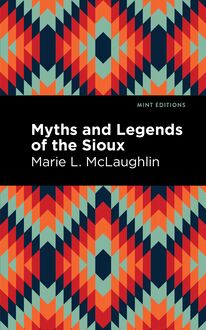-
 Univers
Univers
-
 Ebooks
Ebooks
-
 Livres audio
Livres audio
-
 Presse
Presse
-
 Podcasts
Podcasts
-
 BD
BD
-
 Documents
Documents
-
- Cours
- Révisions
- Ressources pédagogiques
- Sciences de l’éducation
- Manuels scolaires
- Langues
- Travaux de classe
- Annales de BEP
- Etudes supérieures
- Maternelle et primaire
- Fiches de lecture
- Orientation scolaire
- Méthodologie
- Corrigés de devoir
- Annales d’examens et concours
- Annales du bac
- Annales du brevet
- Rapports de stage
La lecture à portée de main

Vous pourrez modifier la taille du texte de cet ouvrage
Découvre YouScribe en t'inscrivant gratuitement
Je m'inscrisDécouvre YouScribe en t'inscrivant gratuitement
Je m'inscrisEn savoir plus
Vous pourrez modifier la taille du texte de cet ouvrage
En savoir plus

Description
O-gî-mäw-kwě Mit-i-gwä-kî (1899) is a novel by Simon Pokagon. Published posthumously, the novel is a semi-autobiographical story of adventure, romance, and tragedy set in the American Midwest. O-gî-mäw-kwě Mit-i-gwä-kî reflects the themes and concerns that shaped Pokagon’s life as a writer and activist, including the devastating effects of alcohol on Native Americans and the increasing pressures of modernization on indigenous tradition. Both personal and political, O-gî-mäw-kwě Mit-i-gwä-kî is a vastly underappreciated novel by a pioneering Native American author.
“On my return home from Twinsburg, Ohio, where I had attended the white man’s school for several years, I had an innate desire to retire into the wild woods, far from the haunts of civilization, and there enjoy myself with bow and arrow, hook and line, as I had done before going to school.” After years of hard work at some of the most prestigious institutions in the Midwest, Simon Pokagon longs to return to the places and people of his youth. On his journey home, he reconnects with his old friend Bertrand, who takes him into the woods to hunt, fish, and build a birch canoe. Back with his tribe, Simon goes looking for his sweetheart Lonidaw, who agrees to marry him. Together, they build a new wigwam and live a hunter gatherer lifestyle, sustaining themselves on a diet of fish and wild rice. While their early days together are idyllic, they face tragedy later in life as their children—now grown—suffer from the effects of alcoholism.
With a beautifully designed cover and professionally typeset manuscript, this edition of Simon Pokagon’s O-gî-mäw-kwě Mit-i-gwä-kî is a classic work of Native American literature reimagined for modern readers.
Sujets
Informations
| Publié par | Mint Editions |
| Date de parution | 27 avril 2021 |
| Nombre de lectures | 0 |
| EAN13 | 9781513288413 |
| Langue | English |
| Poids de l'ouvrage | 1 Mo |
Informations légales : prix de location à la page 0,0450€. Cette information est donnée uniquement à titre indicatif conformément à la législation en vigueur.
Extrait
O-gî-mäw-kwě Mit-i-gwä-kî
Simon Pokagon
O-gî-mäw-kwě Mit-i-gwä-kî was first published in 1899.
This edition published by Mint Editions 2021.
ISBN 9781513283395 | E-ISBN 9781513288413
Published by Mint Editions ®
minteditionbooks.com
Publishing Director: Jennifer Newens
Design & Production: Rachel Lopez Metzger
Project Manager: Micaela Clark
Typesetting: Westchester Publishing Services
As a token of sincere appreciation, I Pokagon hereby inscribe “Queen of the Woods” to all societies and individuals—benefactors of our race—who have so bravely stood for our rights, while poisoned arrows of bitter prejudice flew thick and fast about them, boldly declaring to all the world that “the white map and the red man are brothers, and that God is the father of all.”
The past can never be undone.
The new day brings the rising sun
To light the way of duty now
To children with the dusky brow.
C ONTENTS P REFACE A B RIEF S KETCH OF C HIEF S IMON P OKAGON ’ S L IFE Chief Pokagon’s early history—History of Leopold Pokagon, his father—He visits Washington, D. C.—His visit at the opening of the World’s Fair—The Red man’s book of Lamentations—Visits Fair by request—Address to ladies at the Palmer House—He is a central figure on Chicago Day at the Fair—His message to Mayor Harrison—Deed of Chicago given by his father presented to the mayor—Response of Mayor Harrison—Pokagon’s address to the multitude—Honorary umpire of a game of lacrosse—Occupies the press box at the stock pavilion—Invited by mayor, as his guest, to take part in the closing exercises of the Fair—His sorrow upon learning that the mayor had been murdered—Address of Pokagon at the close of the Fair—Exchanges books with the poetess, Mrs. Smith, and his request—The lady dedicates to his people “The Cry of Cain.” T HE A LGONQUIN L ANGUAGE Pokagon regrets that “Queen of the Woods” can not be read in his own tongue—Number of letters in the Algaic language—The different parts of speech in the language—Transposing of words in a sentence—Expressions of relationship—Names of the twelve months in the year Numerals of the Algaic language—Ordinal and cardinal numbers—Beauty and magnitude of the Algaic language. I. Chief Pokagon’s return home from the white man’s school—Calls on his old friend Bertrand—Requests the old man to take his mother, himself, and the family dog to some wild retreat to spend the summer—The river trip by boat up the stream—Osprey and fish locked together—They reach the place the old man had selected for their summer home—The wigwam-fort and its romantic surroundings—The old man’s return home—Pokagon sees him off—He kills a deer—On his return to wigwam with deer, hears his mother singing in her native tongue—The chief’s enjoyment in their wild retreat. II. He sees a maiden and deer of white across the river passing up the stream—She sings the songs of all the birds—His mother finds him watching the mocking maid—He makes a boat to cross the stream—Meets the maid and her deer the following morning—Finds her home—Visits the maid and her mother—Learns her mother and his mother were both brought up by his own grandmother—They and the deer start home with the chief. III. Crossing the river—The deer of white punches the chief’s dog—Meeting of the mothers of the maid and Chief—The all-night visit—Sad story of the mother of the maid—Her escape from the United States troops—Skiney, the white boy, gives the alarm—The birth of Lonidaw in a swamp—Seeks and finds the old trapper—Tells of Lonidaw’s wonderful gifts—Talk between the chief and the maid—All talk on and on until the morning dawns—Lonidaw plays hide-and-seek with her deer—All go down to the river to meet the old trapper, whom the maid and her mother expect after them that day. IV. Arrival by boat of the old trapper and little Nonnee—The meeting of the old man and boy with the mother and the maid—The old man persuaded to stay all night—The evening feast—The boy tries to play with Loda—Nonnee’s deer-ride and rescue by Loda—Kaw-be-naw, the old trapper, relates how he well knew the young chief’s father—How he saw him start for Washington long, long ago—Nonnee, the bees, and jug—All white men’s jugs possessed with the devil. V. The old trapper in the night awakens Pokagon—Tells him of the ravages of strong drink among his people—Gives an account of Kazell—How Indian whisky was made by the whites—The books in the old Astor House on Mackinaw Island—The old man, with the maid, mother, little Nonnee, and the deer start home—Good-by said at the river’s shore—The family dog rejoices when they are gone—Bertrand comes the following day—Chief and mother start home with Bertrand—Catching ducks alive on the trip home—Chief returns to the white man’s school—His war with love for the maid—He concludes his love is of Heaven, and yields to its charm—He starts to find the maid—Meets Nonnee and Sketer in the woods near Loda’s home—He meets the maid—Her mother promises Loda may become his bride—The mother’s charge to the chief that God will watch the treatment of her only child. VI. Morning of the marriage engagement of chief and Lonidaw—The jealous deer leaves the maiden in despair—Lonidaw and the chief start for Kaw-be-naw’s, the old trapper’s—The whirlwind of wild pigeons gather at Lonidaw’s call—The strange feast at Kaw-be-naw’s—The arrival of Nonnee and Sketer—The snapping mud-turtle—The old man’s charge to Lonidaw—Ashtaw and the snake’s eggs—Lonidaw reveals the secret of her power over animals. VII. Arrival of chief and Lonidaw at her wigwam—Kaw-kee and the captive wolf—Chief goes home with Kaw-kee to stay all night—His survey of the old council-house, Kaw-kee’s home—Learns of his school chums, Petoskey and Blackbird—The great copper kettle found—The two pictures of God before and after he made the world—Lonidaw, when a little girl, playing owl with the crows—Nonnee and Sketer give a deer-mouse show—Pokagon’s strange dream of killing Lonidaw’s deer—Calls to see his promised bride—Finds her forlorn and sad—Chief goes and stays all night with Kaw-be-naw—The story of the trailing arbutus—Pokagon’s admiration of nature on his return the following morning—Is gratified to find his promised bride in sunshine and in smiles. VIII. The wedding day—They seek a place to build their future home—Zowan, the dog, learns to gather flowers—Birth of Olondaw—Birth of Hazeleye—The jealousy of Zowan— Hazeleye forsakes her doll for bow and arrow—Olondaw sent away to school—Lonidaw’s warning dream before he left—His return home in three years—Learns to love strong drink while at school. IX. Death of Olondaw—Hazeleye drowned in the lake—Lonidaw and Zowan try to rescue her—Lonidaw clings to the dog and is brought ashore—Zowan goes after the chief—He hurries home—Carries Lonidaw into the wigwam—She is delirious many days—Her mind becomes rational—She exacts a promise from the chief that he will fight against King Alcohol as long as he shall live—She dies at sunset—Pokagon’s grief—All Nature seems to mourn for “Queen of the Woods.” X. Funeral day of Lonidaw—Her bearers native hunters with white blankets—The procession—Her burial place—Zowan, the dog, driven home—An Indian maid sings at the grave—Chief’s tarry there—His return home—Visits the grave with Zowan—Children of the white race bring wreaths of flowers—Are afraid of the dog—Pokagon’s return to the old landing-place—His spirit surveys his hunting-grounds—The thunder-storm—His prayer to have shown him the effects of strong drink on the pale-faced race—Prayer answered in the visions of the night—Chief again pledges himself to fight against the dreaded monster. XI. The great plague in London—How selfish interests may eclipse the most righteous cause on earth—How beasts of prey protect their young—Supreme Court on the sale of intoxicating drinks—Education will not supply the place of law—The peach contagion stayed by law in Michigan—The great improvements under civilization—Lack of morality the curse of the present age—Let knowledge and righteousness march shoulder to shoulder. XII. Prayer for the best good of all the people—The life-saving stations provided by government—Provisions should be made for shipwrecked humanity along the sea of intemperance— Presidential campaign of 1896—How all political parties may manage so as not to stand in fear of the liquor ballot—Pokagon permitted to see the day of jubilee from “Mount Nebo”—The prayer of twenty millions in the days of the Rebellion—The same prayer still breathed to Heaven—He is permitted to see Paradise regained, and hear the shout of victory from freedom’s farthest shore. A PPENDIX Pokagon’s address to the Order of Red Men—Engagement to address a meeting of the Historical Society of Chicago—Obituary of his death by the publisher—A tribute to his memory by Luella Dowd Smith—Tribute by May S. Wood—Pokagon honored by Graceland Cemetery Company—Monument in Jackson Park—Cradle song by the chief—Sketch of his life and work, from the Chicago Inter Ocean —Obituary of the chief, from the Chicago Inter Ocean —Obituary, from the Chicago Times-Herald —Obituary, from the Chicago Tribune —Obituary, from the Chicago Record —An interesting military document connected with the chief’s father—His new grave—The “Red Man’s Greeting”—Indian skill in splint and bark work.
P REFACE
T he “Queen of the Woods” is a real romance of Indian life by Chief Pokagon. Nearly all the persons mentioned in the narrative bear their real names, and were personally known to many yet living. The reader will bear in mind that in all cases where fictitious names are used, or where the names of persons spoken of are omitted from the narrative, it was purposely done by the author, out of regard for friends and relatives who now occupy the places where certain tragic events occurred. Throughout the whole narrative, the careful reader will note that the author has studiously avoided, as far as consistent, all such acts of seemin
Attention
En entrant sur cette page, vous certifiez :
- 1. avoir atteint l'âge légal de majorité de votre pays de résidence.
- 2. avoir pris connaissance du caractère érotique de ce document.
- 3. vous engager à ne pas diffuser le contenu de ce document.
- 4. consulter ce document à titre purement personnel en n'impliquant aucune société ou organisme d'État.
- 5. vous engager à mettre en oeuvre tous les moyens existants à ce jour pour empêcher n'importe quel mineur d'accéder à ce document.
- 6. déclarer n'être choqué(e) par aucun type de sexualité.
YouScribe ne pourra pas être tenu responsable en cas de non-respect des points précédemment énumérés. Bonne lecture !
-
 Univers
Univers
-
 Ebooks
Ebooks
-
 Livres audio
Livres audio
-
 Presse
Presse
-
 Podcasts
Podcasts
-
 BD
BD
-
 Documents
Documents
-
Jeunesse
-
Littérature
-
Ressources professionnelles
-
Santé et bien-être
-
Savoirs
-
Education
-
Loisirs et hobbies
-
Art, musique et cinéma
-
Actualité et débat de société
-
Jeunesse
-
Littérature
-
Ressources professionnelles
-
Santé et bien-être
-
Savoirs
-
Education
-
Loisirs et hobbies
-
Art, musique et cinéma
-
Actualité et débat de société
-
Actualités
-
Lifestyle
-
Presse jeunesse
-
Presse professionnelle
-
Pratique
-
Presse sportive
-
Presse internationale
-
Culture & Médias
-
Action et Aventures
-
Science-fiction et Fantasy
-
Société
-
Jeunesse
-
Littérature
-
Ressources professionnelles
-
Santé et bien-être
-
Savoirs
-
Education
-
Loisirs et hobbies
-
Art, musique et cinéma
-
Actualité et débat de société
- Cours
- Révisions
- Ressources pédagogiques
- Sciences de l’éducation
- Manuels scolaires
- Langues
- Travaux de classe
- Annales de BEP
- Etudes supérieures
- Maternelle et primaire
- Fiches de lecture
- Orientation scolaire
- Méthodologie
- Corrigés de devoir
- Annales d’examens et concours
- Annales du bac
- Annales du brevet
- Rapports de stage



















